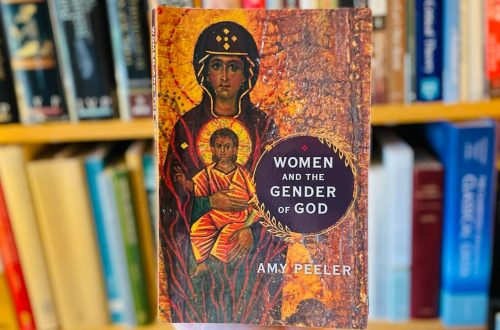The American Academy of Pediatricians argues in a new policy statement that spanking is bad for children (see video above). NBC News describes the report this way:
Parents who hit their kids may believe that a swat “just gets their attention” or imposes old-fashioned discipline, but spanking in fact makes behavior worse than it was before and can cause long-term harm, pediatricians said Monday.
The American Academy of Pediatrics strengthened its advice against corporal punishment in update guidelines, saying it makes kids more aggressive and raises the risk of mental health issues.
“Experiencing corporal punishment makes it more, not less, likely that children will be defiant and aggressive in the future,” the group says in its new guidelines to pediatricians.
“There’s no benefit to spanking,” said Dr. Robert Sege of Tufts Medical Center in Boston, who helped write the guidelines.
I think there are a number of problems with this policy, not the least of which is its definition of corporeal punishment. The policy defines corporeal punishment as “noninjurious, open-handed hitting with the intention of modifying child behavior.” If the definition of corporeal punishment basically includes all forms of open-handed hitting, then the definition is taking into account forms of punishment that would not be the kind of careful, loving discipline that would be a benefit to children.
The American College of Pediatricians has shown that this is indeed a flaw in the methodology of the studies cited. They write,
Although parents sometimes misuse or over-use spanking, does science really show that ordinary spanking of persistently disobedient children causes irreparable harm? The answer may be found by examining the quality of the research behind this claim.
It turns out that most research against spanking uses methods so flawed that such studies would be rejected if they were being used to halt a medical procedure, such as chemotherapy for combating cancer. The anti-spanking research suffers from three major fallacies or defects that invalidate its conclusions.
I encourage you to read the detailed report from the American College of Pediatricians. When these flaws are taken into account, it is clear that the research does not in fact support the conclusions of those who oppose spanking.
In any case, Americans have widely divergent views on the matter. Even evangelical Christians have seen some division over the issue over the years. In light of this, Christians need to be ready to engage this discussion in a biblical way, insisting on the protection of children from abuse while also pursuing biblical truth concerning discipline.
For Christians, the key texts on this issue are in the book of Proverbs. Here’s a sample:
Proverbs 13:24 He who spares his rod hates his son, But he who loves him disciplines him diligently.
Proverbs 29:15 The rod and reproof give wisdom, But a child who gets his own way brings shame to his mother.
Proverbs 23:13-14 Do not withhold discipline from a child; if you punish him with the rod, he will not die. Punish him with the rod and save his soul from death.
Proverbs 22:15 Foolishness is bound up in the heart of a child; The rod of discipline will remove it far from him.
At first blush, these texts read like a straightforward endorsement of corporal punishment. While theologian William Webb has argued forcefully that they are not, Tom Schreiner has shown that such revisionist applications of the text are incorrect.
For a really helpful interpretation of the “spanking” texts in Proverbs, I recommend a short article by Paul Wegner titled, “Discipline in the Book of Proverbs: ‘To Spank or Not To Spank?’.” In this article, Wegner argues that the Proverbs in question reveal six different levels of discipline available to parents, one of which is corporal punishment (#6).
Level 1. Encourage proper behavior: A wise parent encourages a child to behave properly (Prov. 1:8-9; 2:2-5; 3:13-15; 4:7-8).
Level 2. Inform of improper behavior: A wise parent is proactive and addresses certain issues before the child might be confronted by them (Prov. 1:10-15; 3:31-32).
Level 3. Explain the negative consequences of sin: A wise parent points out the negative consequences that lie along the path of life (Prov. 1:18-19; 5:3-6).
Level 4. Gently exhort: Wise parents will, on an ongoing basis, advise and exhort their children against sin that can easily become a pattern and encourage them to use wisdom (Prov. 4:1-2, 14-16).
Level 5. Gently rebuke or reprove: The wise parent knows when to use rebuke properly (Prov. 3:12; 24:24-25).
Level 6. Corporal punishment that does not cause physical harm: A wise parent knows when to use corporal, non-abusive punishment (Prov. 19:18; 13:24; 23:13-14; 29:15).
Andy Naselli has a thoroughly biblical look at the issues in an article published in 2013 titled “Training children for their good.” Naselli argues that the Bible supports the use of spanking as a legitimate form of discipline. There is careful discussion of the relevant biblical texts, especially the Proverbs. If you’re looking for a solid, biblically formed work on spanking, you need to read this. In fact if you don’t read anything else, you should read this one. Here is the outline of his argument:
Introduction
A. Seven Propositions about Discipline from Hebrews 12:4-11
1. God disciplines his children (Heb 12:5-7, 10).
2. God disciplines all his children (Heb 12:6, 8).
3. God disciplines only his children (Heb 12:6-8).
4. Discipline is training: God disciplines his children for their good (Heb 12:10-11).
5. Discipline seems unpleasant and painful (Heb 12:11).
6. God’s children should endure God’s discipline (Heb 12:5, 7, 9).
7. God’s disciplining his children compares to human parents’ disciplining their children (Heb 12:5, 7-10).
B. Levels of Discipline in the Book of Proverbs
Level 1. Teach
Level 2. Warn
Level 3. Enforce
Q1. Does “the rod” represent discipline but exclude physical discipline (Prov 13:24; 22:15; 23:13-14; 29:15)?
Q2. Is spanking a form of physical and psychological child abuse?
Q3. Do the proverbs about using the rod refer to young men rather than children?
Q4. Is spanking an obsolete part of the Mosaic law-covenant in the Old Testament?
Q5. Is spanking antithetical to the gospel?
C. Concluding Application
1. Pray for your children.
2. Evangelize your children.
3. Use multiple levels of discipline.
4. Love your children, and tell them and show them that you love them.
5. Beware of two extremes: (a) not disciplining and (b) over-disciplining.
6. Fathers, take the lead in discipline.
7. Learn how to discipline each of your children most effectively.
8. Distinguish between family rules and the Bible.
9. Be humble about parental discipline; don’t be proud and judgmental.
10. Persevere with a long-term view that trusts God’s word.
4. Recommended Resources
There is much more that can and should be said about this, but these writers conclude that the Bible allows corporal punishment that is non-abusive and that does not cause bodily harm. If you are interested in reading more, I recommend the resources that Naselli provides at the end of his article.
Remember that there is no substitute for a parent’s loving discipline of their children. It is the job of parents to commit themselves to this challenging work as an expression of love for their children.
“He who spares his rod hates his son, But he who loves him disciplines him diligently.” -Proverbs 13:24



